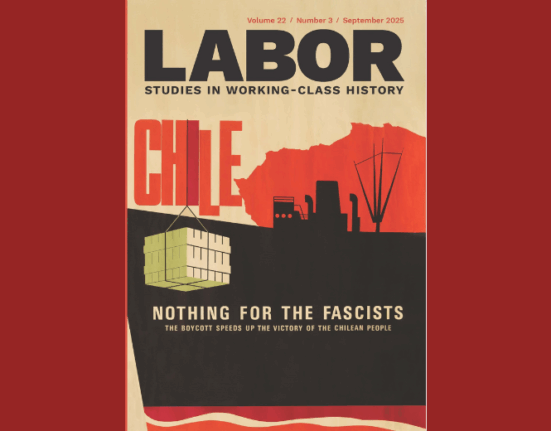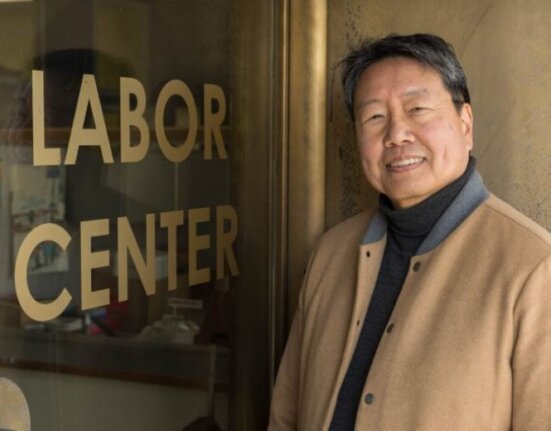Jefferson Cowie (JC): Academic disciplines and their subfields are always in some kind of “crisis,” it seems, but for labor history that crisis is pretty real. If I were to look into the future, the best hope might be the turn toward the “History of Capitalism.” I know it brings students into the classroom and sexes things up a bit (see what’s going on at Harvard) but I’m afraid that it is too totalizing of a framework, one that reifies or naturalizes its subject to the point that conflict, politics, work, unions, and the rest of what we do will be reduced, at best, to occasional colorful appendages to the flows of capital and commodities. In short, while we need to rethink labor history, I fear this move might sacrifice the soul of what’s best of our enterprise.
Scott Nelson (SN): Jeff and I were both trained at University of North Carolina – me in the 1980s and him in the 1990s. Leon Fink (our advisor) pushed us to take classes outside of the framework of straight-up labor history. I remember classes like “capitalism and slavery”, “workers in the world”, “The Americas”, and “Intellectuals and Social Action” (some team-taught with anthropologists, historians and political scientists).
This was great fun for me as an activist and a labor historian, though I found both mainstream economics and social theory difficult. After comprehensive exams when I went back to teaching and TAing our bread-and-butter classes — the US history survey and the labor history survey — I got kinda bored. That’s why I found the idea of a history of capitalism course so exciting. I taught it as “history of American capitalism” this semester and I confess that I like to have a contentious mix of activists, libertarians, and Wall Street wannabes in the class. I also had a former Goldman Sachs bond trader (now a finance professor) in the classroom. It is definitely different from teaching a class on globalization or politics of food or labor & the left (the other sidetrips for labor historians). Is there less labor? Certainly. But I feel like I end up doing many of the same themes: craft production to assembly line, scientific management, populist-labor fusion, Fordism, and the New Deal. But I also have to explain net-present-value and liquidity traps. I have been accused of being a lapsed labor historian, but I would endorse confronting what I would have (20 years ago) called the dark side.
JC: I completely agree with Scott’s (and Leon’s) demand for a more holistic perspective on our field. Labor History does damage to itself and, more importantly, the study of history in general if it is isolated from the rest of the field. Scott’s own work is a testament to breadth.

Yet some of what Scott lays out above brings to mind a problem that I think is under-recognized: the degree to which the success of the field generated it’s own crisis. As I wrote elsewhere, the LH disciples have often gone off to form their own congregations, leaving us with little more than the old orthodoxy:
often overlooked is the fact that labor history is also a victim of its own intellectual successes. To be interested in the “new” labor history” back in the day of my advisor’s advisor, Herbert Gutman, was to be involved in debates and research on ethnicity, slavery, race, immigration, colonization, community history, and women’s history; in fact, the entire field of social history seemed to sprout from the soil first plowed by the new labor history. Those fields now flourish with their own journals, their own conferences, their own debates. “Labor history,” I fear, is now left with only the boring institutional stuff of the sort that may not be all that relevant to understanding many of the problems of today.
So our purview certainly needs to be widened. An overdependence on institutional labor history is a dead end—and it’s also “boring” as Scott says. The term “labor” now seems as buried and ossified as dinosaur bones. But the term “History of Capitalism” seems less useful to me than that old rubric “political economy” or what might be available with a simple modifier like “capitalism and conflict.”
So, although I can’t find a way to fight the incoming tide, I’m still uncomfortable with just how dangerously naturalizing this might be, especially for undergraduates who think “everything has always been thus,” and that there’s little hope of change. HoC does not even take into account what some call the “varieties of capitalism.” I fear the whole thing has a bit of a Fukuyamian whiff to me.
SN: Like Jeff, I’m not a fan of the term HoC, and I agree that we have to teach it in a way that’s not totalizing or assumes that capitalism is somehow natural. We’d be reinscribing the Louis Hartz book, The Liberal Tradition in America, which along with Stanley Elkins were the most loathed history books of social historians a generation before us. I don’t think institutional labor history is fully dead, and digging up metaphorical bones is what we do best as historians. But as for being totalizers, yes, I think we can safely say that all of American history is really labor history. If history is the mother of all the disciplines, then labor history is the grandma. We just need to get the whole world to sign their cards.







3 Comments
Comments are closed.